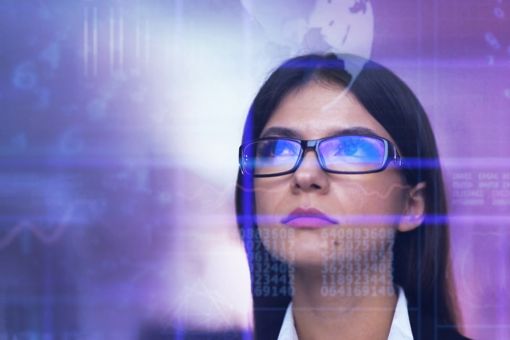In the next decade, Artificial Intelligence (AI) will fundamentally transform the audit through automating procedures and enhancing audit quality. Keith Stafford from our Audit team outlines how AI can support all audit areas, from analysing data to helping auditors make more insightful judgments.
How is AI changing the way auditors work?
AI is changing every business, automating, accelerating and enhancing business processes, helping to transform at scale and drive value. This means delivering even higher quality audits.
For example, we expect AI will continue to help KPMG firms better identify high-risk transactions, allowing us to sustain our focus on risk assessment and obtain audit evidence over much larger, more complex data sets.
Also, by removing some of the more time-consuming tasks for auditors, AI will free them up to apply valuable skills in other areas, again enhancing the audit for everyone.
How can AI impact businesses and specific industries?
KPMG is seeing a broad range of companies, regardless of industry, using AI alongside their workforce in processes surrounding financial and non-financial accounting and reporting.
What are the potential risks of AI?
First of all, it is critical AI is being built with the most accurate, unbiased and relevant data available. Secondly, companies often focus their investment in AI on growth strategies, customer focus or frontline operations and often underprioritise the investment in AI support, governance, risk and compliance.
There are ethics and resilience issues to consider here too. Guidelines are needed and due to constant change, aspects must be continually monitored and addressed.
A key risk around AI, which is very relevant to audit, is 'explainability'. By this we mean we still need to understand and explain why the technology may be highlighting certain items and trends.
That's why we believe it's important to have people working alongside AI to prompt deeper thinking and challenge where necessary rather than removing people from the loop entirely. At the same time, this will help training the AI continuously through human input.
Lastly, as with any new technologies, companies need to think carefully about the skill sets they need within their organisation to achieve and to maximise the possibilities, recognising that it won't be perfect straight away.
AI is changing every business, automating, accelerating and enhancing business processes, …. delivering even higher quality audits.

How is KPMG adapting to the AI trend?
As businesses introduce more AI we will continue to provide assurance across their processes. KPMG firms have already developed the know-how to help businesses and organisations adapt to (and even embrace) the cultural changes that AI brings. All within an ethical framework that helps manage responsible implementation.
One way we are adapting is to use this technology to apply multiple checks on each transition to enhance our ability to detect anomalies. For example, the ability to spot behaviour outliers across the different data elements, including identifying users who normally don't post entries and suddenly do.
AI will help us to find that needle in the haystack. Additionally, we're using AI to help support the processing of large datasets around natural language processing, voice and speech recognition.
Stronger together
KPMG has always believed that technology, including AI, has the potential to empower and enhance auditors in their day-to-day work and provide real value to an audit. But, we must never simply rely on AI as a black box; 'explainability' is key. That's why we believe AI will never replace people, and KPMG will always have human knowledge in the audit loop.
Contact Keith Stafford for advice on using AI in your audit. We look forward to hearing from you.
Keith Stafford
Partner
KPMG in Ireland

